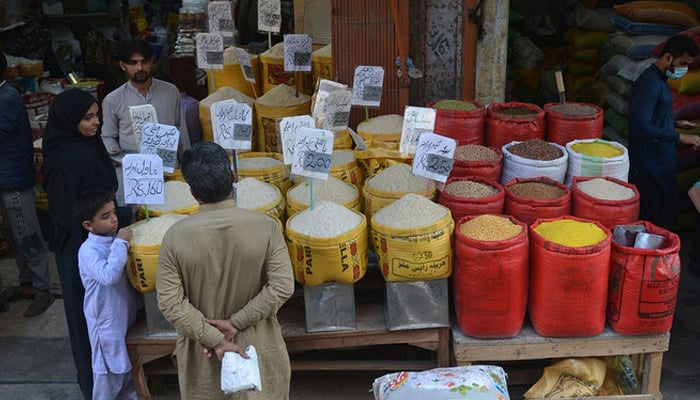No easy solutions
LAHORE: Time is not on Pakistan’s side. The country is not in a position to face strikes or agitation. Every day that passes without a permanent government is broadening the economic difficulties of the state.
The new government will be weak. The way the leaders of the coalition are speaking in public shows that they want the new government to announce incentives to please the electorate who are burdened with high prices. Will the government be able to meet the expectations of the masses? In the current situation, it seems highly improbable. The citizens are reeling under high power charges, but their concerns would not be addressed if Pakistan wants to continue its engagement with the IMF. There is no other alternative. The same goes for gas and petroleum rates.
The next objective of the new rulers would be to control the prices of daily use items. It is illogical to think that the rates of essential commodities would go back to the 2018 or even 2022 level. The cost of production has increased hugely during the past two years. All production sectors, including agricultural production, use petroleum products and electricity for operations. An increase in their rates means that the cost will be higher for both agricultural and industrial goods. For the agriculture sector, the costs of other inputs like fertilizers, pesticides, imported or local seeds have almost doubled. We cannot expect the farmers to supply their produce at the rates that would provide relief to the masses.
As far as industry is concerned, it has passed on all the increases in its cost to the consumers. The latest increase in power and gas rates, though, has not been factored in. This means prices are expected to further increase. The imported raw materials now cost almost double the cost in 2022. It is because of the decline in rupee value, higher custom duties and other government levies. Though new investment has remained elusive, the manufacturers do need working capital from the banks. The policy rate of 22 percent means that they get loans at policy rate plus 2-3 percent premium.
The price control committees would have to take these facts into consideration before fixing the rates of any item. The administrative arm twisting would not work. The principle of supply and demand should also be considered. Where possible, the state could intervene to import items that are in short supply. This is a difficult task and needs to be tackled by bureaucrats with unblemished track records (majority are rent seekers). Moreover, the control must be imposed at the manufacturing and wholesale level and not at retailers who buy goods from manufacturers or wholesalers. If they buy goods at higher than the controlled rates, then they cannot sell at the prescribed rates. But usually they are harassed by the authorities.
The result is that retailers sell inferior products at control rates. An impression is created in the market that superior quality stuff is acutely short. The retailers hide the superior quality at home or elsewhere, which they sell discreetly at much higher than controlled rates. This process is akin to the control exercised by the drug regulatory authority of medicine prices. The medicines that are commercially viable for the manufacturers are then available at double or higher prices in the black market.
It will be a great success for the new government if it manages to stop further increase in rates. This would be only possible if inflation is brought under control by cutting every unnecessary government expense.
-
 Extreme Cold Warning Issued As Blizzard Hits Southern Ontario Including Toronto
Extreme Cold Warning Issued As Blizzard Hits Southern Ontario Including Toronto -
 Lana Del Rey Announces New Single Co-written With Husband Jeremy Dufrene
Lana Del Rey Announces New Single Co-written With Husband Jeremy Dufrene -
 Ukraine-Russia Talks Heat Up As Zelenskyy Warns Of US Pressure Before Elections
Ukraine-Russia Talks Heat Up As Zelenskyy Warns Of US Pressure Before Elections -
 Lil Nas X Spotted Buying Used Refrigerator After Backlash Over Nude Public Meltdown
Lil Nas X Spotted Buying Used Refrigerator After Backlash Over Nude Public Meltdown -
 Caleb McLaughlin Shares His Resume For This Major Role
Caleb McLaughlin Shares His Resume For This Major Role -
 King Charles Carries With ‘dignity’ As Andrew Lets Down
King Charles Carries With ‘dignity’ As Andrew Lets Down -
 Brooklyn Beckham Covers Up More Tattoos Linked To His Family Amid Rift
Brooklyn Beckham Covers Up More Tattoos Linked To His Family Amid Rift -
 Shamed Andrew Agreed To ‘go Quietly’ If King Protects Daughters
Shamed Andrew Agreed To ‘go Quietly’ If King Protects Daughters -
 Candace Cameron Bure Says She’s Supporting Lori Loughlin After Separation From Mossimo Giannulli
Candace Cameron Bure Says She’s Supporting Lori Loughlin After Separation From Mossimo Giannulli -
 Princess Beatrice, Eugenie Are ‘not Innocent’ In Epstein Drama
Princess Beatrice, Eugenie Are ‘not Innocent’ In Epstein Drama -
 Reese Witherspoon Goes 'boss' Mode On 'Legally Blonde' Prequel
Reese Witherspoon Goes 'boss' Mode On 'Legally Blonde' Prequel -
 Chris Hemsworth And Elsa Pataky Open Up About Raising Their Three Children In Australia
Chris Hemsworth And Elsa Pataky Open Up About Raising Their Three Children In Australia -
 Record Set Straight On King Charles’ Reason For Financially Supporting Andrew And Not Harry
Record Set Straight On King Charles’ Reason For Financially Supporting Andrew And Not Harry -
 Michael Douglas Breaks Silence On Jack Nicholson's Constant Teasing
Michael Douglas Breaks Silence On Jack Nicholson's Constant Teasing -
 How Prince Edward Was ‘bullied’ By Brother Andrew Mountbatten Windsor
How Prince Edward Was ‘bullied’ By Brother Andrew Mountbatten Windsor -
 'Kryptonite' Singer Brad Arnold Loses Battle With Cancer
'Kryptonite' Singer Brad Arnold Loses Battle With Cancer




